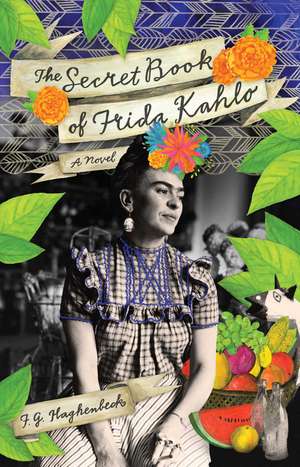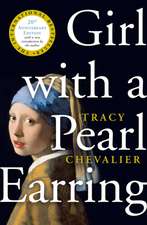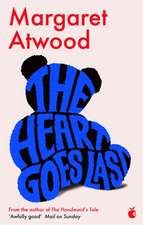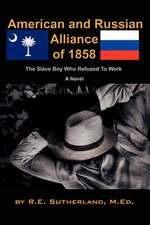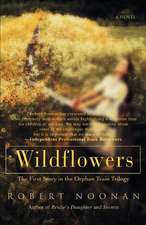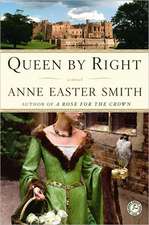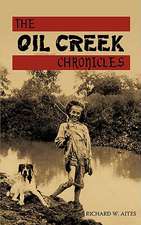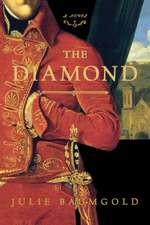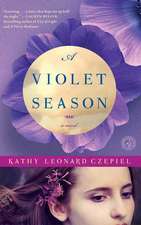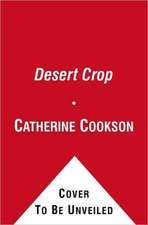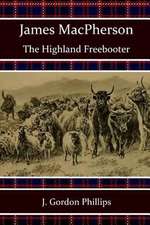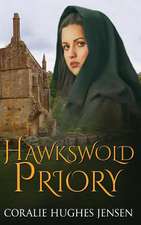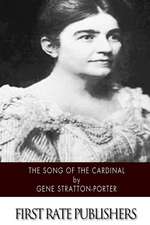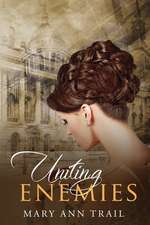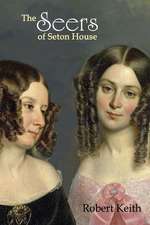The Secret Book of Frida Kahlo: A Novel
Autor F. G. Haghenbecken Limba Engleză Paperback – 27 sep 2012
When several notebooks were recently discovered among Frida Kahlo s belongings at her home in Coyoacan, Mexico City, acclaimed Mexican novelist F. G. Haghenbeck was inspired to write this beautifully wrought fictional account of her life. Haghenbeck imagines that, after Frida nearly died when a streetcar s iron handrail pierced her abdomen during a traffic accident, she received one of the notebooks as a gift from her lover Tina Modotti. Frida called the notebook The Hierba Santa Book (The Sacred Herbs Book) and filled it with memories, ideas, and recipes.
Haghenbeck takes readers on a magical ride through Frida s passionate life: her long and tumultuous relationship with Diego Rivera, the development of her art, her complex personality, her hunger for experience, and her ardent feminism. This stunning narrative also details her remarkable relationships with Georgia O Keeffe, Leon Trotsky, Nelson Rockefeller, Ernest Hemingway, John Dos Passos, Henry Miller, and Salvador Dali. Combining rich, luscious prose with recipes from The Hierba Santa Book, Haghenbeck tells the extraordinary story of a woman whose life was as stunning a creation as her art."
Preț: 111.33 lei
Nou
21.31€ • 21.96$ • 17.99£
Carte disponibilă
Livrare economică 10-24 februarie
Specificații
ISBN-10: 1451632835
Pagini: 368
Ilustrații: recipes
Dimensiuni: 135 x 210 x 25 mm
Greutate: 0.36 kg
Ediția:Original.
Editura: Simon & Schuster
Colecția Atria Books
Locul publicării:New York, United States
Notă biografică
Extras
That night in July wasn’t like any other; the rains had gone, leaving a starry sky free of careless clouds weeping tears on the city’s residents. Occasionally, a slight breeze whistled like a mischievous child playing in the trees surrounding the imposing blue house slumbering in the warm summer night.
It was precisely on this quiet summer eve that a constant drumming rolled through every corner of the Coyoacán neighborhood. A horse’s hooves clip-clopped against the cobblestone streets. The echo of its steps rang out on every corner and in front of the tall tile-roofed homes to warn residents of the visiting stranger.
Curious, because Mexico City was already a modern metropolis far removed from its archaic fables and provincial legends, the residents of Coyoacán interrupted their suppers to peek at the mysterious rider who came in on a cool summer breeze more appropriate to the dead or to apparitions. A mad dog barked at the stranger, which didn’t bother the beautiful white steed, much less its driver: a sullen horseman dressed in brown with holsters bearing loaded guns crisscrossing his chest. His large straw hat was like a church dome, completely obscuring his face. The only things visible through the shadows were his startling bright eyes and a thick mustache that extended beyond the sides of his face. As he rode by, the elders double-locked, bolted, and barred their doors; they still had fearful memories of the Revolution, when strangers brought ruin and desolation.
The horseman came to a stop at the corner of Londres Street, in front of an indigo house whose all-cobalt façade made it stand out in the neighborhood. The windows looked like giant eyelids on either side of the door. The horse was a bit nervous but calmed down when the man dismounted and tenderly petted its neck. After adjusting his hat and holsters, the stranger swaggered toward the door and pulled the cord to ring the bell. An electric light flicked on and the entire entryway was immediately lit up, revealing an army of moths humming desperately about the spotlight. When Chucho, the houseboy indispensable to any respectable home, stuck his head out and saw the visitor, the man stared straight at him and took a step. Trembling, the houseboy let him in after crossing himself several times and murmuring a few Hail Marys. Without a word, the visitor crossed the hall with giant strides until he reached a marvelous courtyard decorated with artisanal furniture, exotic plants, and pre-Columbian idols. The house was full of contrasts. Objects reminiscent of painful and happy memories, of past dreams and current nightmares, all managed to coexist. Everything spoke of the private world of the owner who waited for the caller in her room.
The newly arrived guest walked through each room with the confidence of someone who knew them by heart. On his way, he ran into a huge cardboard Judas with a thick baker’s mustache, which would not be revered on an Easter Sunday but would serve instead as a model for one of the owner’s paintings; he strolled past grinning sugar skulls; he passed Aztec mortuary figures and a book collection cloying with revolutionary ideas; he crossed the living room that had sheltered artists who had changed a nation and leaders who had transformed the world, but he never looked at the old and familiar photographs of previous tenants, or at the paintings with colors that leapt like rainbows drunk on filmy mescal, until he reached the wooden dining room table, feeling nostalgic for the easy laughs and the noisy get-togethers of yesteryear.
La Casa Azul was a place to welcome friends and acquaintances with pleasure. And the horseman was an old friend of the owner’s, which is why when Eulalia the cook, saw him, she ran to the kitchen lined with shiny Talavera mosaics to get him a drink and prepare some snacks. Of all the rooms in the house, the kitchen was where its heart beat, where the inert edifice came to life. Much more than a simple abode, La Casa Azul was its owner’s sanctuary, refuge, and shrine.
La Casa Azul was Frida herself. It housed all her life’s memories. It was where portraits of Lenin, Stalin, and Mao Tse-tung serenely shared space with rustic altar pieces for the Virgin of Guadalupe. Her collection of porcelain dolls (survivors of various wars), naïve crimson carts, cubist hand-shaped earrings, and miraculous silver pieces—to bless favors granted by saints—flanked Frida’s brass bed. Everything gave testimony to the forgotten wishes of the woman sentenced to live nailed to a bed. Frida: patron saint of melancholia, woman of passion, painter of agonies, who remained in her bed, her gaze on the mirrors that silently struggled to reflect back her best image: the artist, dressed as an indigenous woman from Oaxaca, a Zapotec, or in an array of all the different cultures of Mexico. The harshest of all the mirrors was the one above her bed, which insisted on displaying the theme of her entire body of work: herself.
When the stranger found the bedroom, Frida turned her anguished face, and their eyes met. She looked extremely thin and tired. She seemed much older than her half century of life. She had a faraway look in her coffee-colored eyes, aimless because of the many drugs she was shooting up to keep the pain away—and because of the tequila in which she marinated her lovesickness. Those eyes like dying embers, which had once been fiery flames when Frida spoke of art, politics, and love, were now distant, sad, and—more than anything—weary. She could barely move; an orthopedic corset held her prisoner, restricting her freedom. Her only leg moved nervously in search of its companion—the one that had been amputated months before. Frida stared at her visitor, recalling their previous encounters, each one tied to a misfortune. She had been desperately waiting for this meeting, and when the room filled with the smell of the countryside and wet earth, she knew that the Messenger had at last responded to her call. The Messenger continued to simply stand by, letting his gleaming gaze rest upon her delicate and broken body. They didn’t greet each other; old acquaintances can be forgiven for dispensing with useless niceties. Frida merely lifted her head as if to ask how things were going in his part of the world, and he responded with a slight tug on his hat that indicated everything was just fine. Then, irritated, Frida called for Eulalia to attend to her guest. Her screams were rude and vulgar. Her old humor, flirty and quick, had been buried with her amputated leg; that part of her had died after all the surgeries and the distress of her illness. She was now a bitter lemon when it came to others.
The servant appeared with a tray adorned with flowers and a place mat embroidered with birds that read “Hers” in white rose petals. She placed it on the little nightstand next to the bed. The treats for the visitor included tequila and appetizers.
Nervous because of the man’s presence, Eulalia served the liquor in two blown-glass cups the same blue as the house and accompanied each with respective sangritas. She brought over fresh pico de gallo, a thick oven-baked cheese loaf, and quartered lemons, then vanished.
Eulalia couldn’t avoid the shivers provoked by the stranger’s presence in the house at that hour of the night; he gave her goose bumps. As soon as she could, she explained to the rest of the staff that she’d never seen his body cast a shadow. Like Chucho, she recited the necessary Hail Marys and Our Fathers to keep away the evil eye and funereal airs.
Frida lifted her cup of tequila. With that particular way she had of raising her single brow, she brought the cup to her mouth, in part to mitigate the sharp flashes of pain, and in part to accompany her guest. The Messenger performed his part with the cup but did not drink the sangrita. It was a shame that he slighted it, because it was prepared with one of the recipes that Lupe, Diego’s ex-wife, had taught her. Frida served herself another cup. It was not her first that day, but it would be her very last. The alcohol slipped down her throat, awakening her sleepy head.
“I called you because I need you to take a message to my Godmother. I need to change our appointment on the Day of the Dead. There won’t be an offering this year. I need her to come tomorrow. Tell her I hope the journey will be a joyous one and that I don’t want to come back this time.”
Frida then kept quiet to let the Messenger answer, but, as always, there was no response. Even though she’d never heard his voice, she insisted on talking to him. His eyes, hungry for earth and freedom, stayed upon her. He drank his last tequila like an act of solidarity, put down the cup, turned to leave the room, his spurs jangling, and left the artist a wreck, like her body. He walked across the courtyard like a ranch foreman, passing the patio, where the parrots, dogs, and monkeys all screeched when they saw him. He reached the door, which was held open by Chucho, and bid a dry farewell with a nod, while the terrified houseboy crossed himself more times than a widow on Sunday. The man mounted his white steed anew and disappeared down the street into the blue-black night.
As soon as she heard the hoofs grow faint in the cold wind, Frida wrapped her hand around a brush dripping black ink. She scribbled a phrase in her personal diary and adorned it with vignettes of black angels. She finished the drawing with tears in her eyes. She closed the diary and called the cook again. Then she took a faded notebook from her desk, a gift from days gone by, when she could still dream of living. It had been given to her by her friend Tina a few months before she married Diego. Besides being a keepsake, it was the only wedding gift she’d kept. She opened it to the first page and read with an imperceptible movement of her lips: “Have the courage to live, because anyone can die.” Slowly and carefully, she began to turn the pages, like a librarian before a Bible written on ancient scrolls. There were treasures hidden on each page, pieces of herself scribbled out in recipes she’d spiced up, a delicious stew of poems and commentary about everyone in her life. She called it “The Hierba Santa Book” as a kind of joke. It was there that she kept the recipes she used to build the altars for the Day of the Dead to keep a promise she’d made long ago. She searched through the pages scented with cinnamon, pepper, and small bundles of hierba santa for the recipe she’d give to Eulalia.
“I’m going to entrust you with a very important task, Eulalia. You’ll prepare this dish tomorrow, exactly as I have written it out. You’ll go to the market early to get everything you need. I want it to be sublime.” She pointed to the recipe. She paused to let the anguish pass, knowing life was slipping by, then continued giving orders. “After the rooster crows, get him and slaughter him for the stew.”
“Fridita, you’re going to kill poor Mr. Cock-A-Doodle-Do?” Eulalia asked, astonished. “But he’s your favorite. You spoil him as if he were your own child.”
Frida didn’t bother to respond but simply turned her face and closed her eyes to see if she could get some sleep. Eulalia left the room, the notebook held against her heart.
On the bed that was her prison, Frida dreamt about banquets, sugar skulls, and paintings at an exhibition. When she awoke, she did not see Eulalia. The house was still. She began to question whether the Messenger’s visit, and in fact her whole life, including her first death, had not been a trick played on her by the drugs she’d been prescribed to contend with the pain that so tortured her. After considerable thought, she realized everything was true. And she broke down crying, in rage and in agony, until sleep lulled her away again, far from reality.
Hours later, Diego arrived from his studio in San Ángel.
When he came into the bedroom to see Frida, he found her asleep, wearing a pained expression. He thought it odd that there was a bottle and two half-filled cups of tequila on the nightstand. He was even more intrigued when the servants told him the lady of the house had not had any visitors. He pulled the rocking chair next to his wife’s bed and sat down. He took her hand with great care, as if it were a piece of fine porcelain, and caressed it as if he feared he could hurt her. All the while, his memory journeyed through their shared past: he conjured the fire he still felt for that tiny body he loved with ardor as well as with a child’s devotion to his mother. He savored their nights of sex, of Frida’s white breasts, small as peaches, and recalled the roundness of her ass. He remembered how, when he mentioned it to her, she gave a saucy response: “My ass is like hierba santa?” Then she explained that the herb grew in the shape of a heart. He cried for a while at her side, realizing the source of his rapture was now a withered form. “My Frida, mi querida Fridita,” he murmured as sleep overtook him.
The next morning, after Frida’s favorite rooster announced the new day, just like he had done so marvelously for more than twenty-two years, they twisted his neck and boiled him into a stew. But Frida never brought it to her lips.
The medical report said her death was due to pulmonary complications. With the complicity of the authorities, Diego managed to avoid having her autopsied. Since then, the theory that she committed suicide has spread like the aroma of morning coffee over a slow fire. The last heartrending words Frida wrote in her diary were: “I hope it’s a joyous march, and that I don’t come back this time.”
THE MESSENGER
“Whoever wants to be an eagle should fly; whoever wants to be a worm should crawl and not scream when he’s stepped on,” he once said. He didn’t say it to me. I don’t really know who he said it to, but there’s no doubt he said it. He needs to be offered tequila, sangrita, and something to eat, because he’s surely exhausted from his long journey. I’d be dead on my feet, too, riding around like that.
PICO DE GALLO
Once, when she was in a good mood, Lupe told me that tequila and pico de gallo were indispensable to the pre-dinner ritual in Jalisco. Back in her hometown, when the workers returned home from the fields, they’d sit in leather chairs in the shade of the corridor and eat spicy fruit and cheese loaves between sips of tequila.
2 freshly peeled jicamas
4 large juicy oranges
3 peeled cucumbers
1/2 peeled pineapple
3 unripe mangoes
1 xoconostle (prickly pear) cactus
1 handful green onions
Pomegranate seeds (optional)
6 lemons
4 green chiles
Coarse salt
Ground chile (optional)
The jicamas, oranges, cucumbers, pineapple, mangoes, cactus, and green onions must be chopped uniformly and in equal quantities. If pomegranates are added to the dish, the seeds can be arranged like the Mexican flag. The dish must be dressed with juice from the lemons, the chiles, and 1 tablespoon of salt. Or it can be seasoned with the lemons and powdered chile.
CHEESE LOAF
Queso panela horneado
This loaf, from the land of tequila, is made with a very delicious and fresh cheese, different from what I usually buy. You can get it in the markets and little stores. Lupe would bring some from her travels sometimes.
1 queso panela (cheese)
1 large garlic clove
1/4 cup chopped cilantro
1/4 cup chopped parsley
1/4 cup chopped basil
1 tablespoon fresh oregano
1/2 cup olive oil
Salt and freshly ground black pepper
The fresh cheese must be placed in a clay pot and covered with a salsa that’s prepared by chopping the garlic clove together with the rest of the ingredients. It’s seasoned with salt and pepper and left to marinate for 6 hours in the open air, either in the courtyard or on the windowsill, careful to make sure the monkeys don’t eat it. Later, it’s oven-baked at 350°F for about 20 minutes or until it begins to melt. It’s served hot. This dish is particularly good as an appetizer accompanied by tostadas or slices of bread.
SANGRITA
I devised this recipe while traveling with Muray. That’s when he taught me that I needed to drink my tequila alongside something bittersweet. I take my tequila straight, like a man, and it has always served me to impress the gringos when they come to see Diego.
2 ancho chiles
2 tablespoons diced onion
2 cups orange juice
1/2 cup lime juice
Salt
Tomato juice (optional)
Roast the chiles, and discard the seeds and veins. Boil the chiles for 2 minutes, then let them rest for 10 minutes. In a blender or molcajete (a Mexican mortar and pestle), bring together the onion, orange juice, lime juice, and ancho chiles. Mix well; add salt. More orange juice, lime juice, or tomato juice may be added.
The sangrita is a woman. She’s redolent of spices and onions. She’s who adds color and fire to the macho tequila. The two of them, together, are a perfect idyll.
How I’d love to be that way with my Dieguito. He can be my friend, my son, my lover, my colleague, but never my husband. After the crash on the bus, he’s the worst accident I’ve ever had.
Descriere
One of Mexico s most celebrated new novelists, F. G. Haghenbeck offers a beautifully written reimaginingof Frida Kahlo s fascinating life and loves.
When several notebooks were recently discovered among Frida Kahlo s belongings at her home in Coyoacan, Mexico City, acclaimed Mexican novelist F. G. Haghenbeck was inspired to write this beautifully wrought fictional account of her life. Haghenbeck imagines that, after Frida nearly died when a streetcar s iron handrail pierced her abdomen during a traffic accident, she received one of the notebooks as a gift from her lover Tina Modotti. Frida called the notebook The Hierba Santa Book (The Sacred Herbs Book) and filled it with memories, ideas, and recipes.
Haghenbeck takes readers on a magical ride through Frida s passionate life: her long and tumultuous relationship with Diego Rivera, the development of her art, her complex personality, her hunger for experience, and her ardent feminism. This stunning narrative also details her remarkable relationships with Georgia O Keeffe, Leon Trotsky, Nelson Rockefeller, Ernest Hemingway, John Dos Passos, Henry Miller, and Salvador Dali. Combining rich, luscious prose with recipes from The Hierba Santa Book, Haghenbeck tells the extraordinary story of a woman whose life was as stunning a creation as her art."
